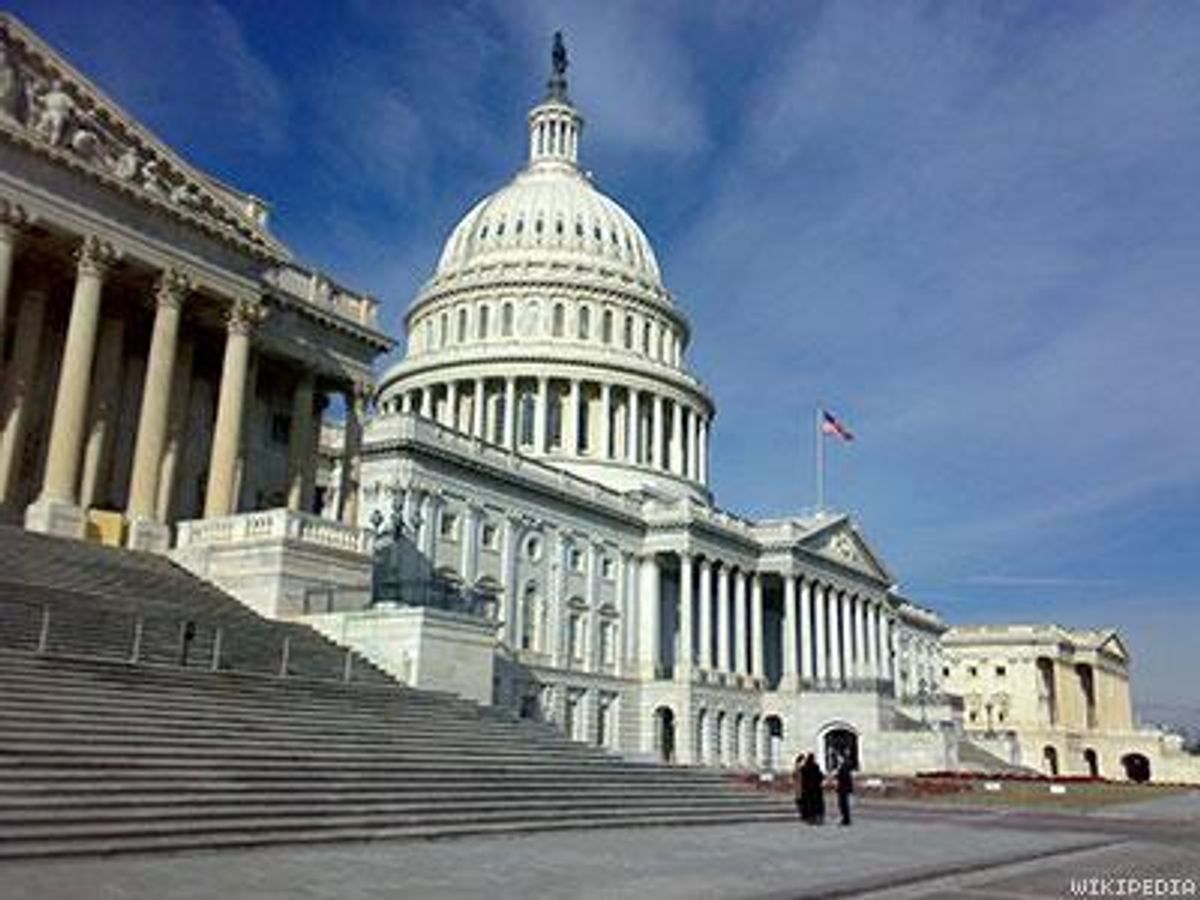In 1974 the Equality Act was introduced to add sexual orientation throughout the 1964 Civil Rights Act. Twenty years later, for various political reasons, the bill was stripped down to be only an employment rights bill and renamed the Employment Non-Discrimination Act. ENDA has been the centerpiece of LGBT federal legislation ever since -- although gender identity was excluded from the act until 2007. And this week we are very pleased to announce that ENDA is being replaced with the Equality Act, a more comprehensive bill that when passed will offer protection in employment, housing, public accommodations, and four other areas.
NCTE has advocated for over 10 years for refocusing on a comprehensive bill more akin to the original Equality Act. The most notable difference between the Equality Act and its 1974 namesake is that it includes both gender identity and sexual orientation -- and unlike in 2007, removing gender identity is now completely unthinkable.
Here's what you may want to know.
* The Equality Act will be introduced this Thursday by Sen. Jeff Merkley in the U.S. Senate and Rep. David Cicilline in the U.S. House of Representatives, along with Sen. Tammy Baldwin and Cory Booker, and Reps. Nancy Pelosi and John Lewis. They will be joined by a large number of cosponsors.
* The bill will explicitly prohibit discrimination based on gender identity and sexual orientation in employment, housing, education, credit, public accommodations, jury service, and federally funded programs. (Gender identity and sexual orientation are defined the same way they were in ENDA.)
* The bill will also codify the existing interpretations of sexual orientation and gender identity bias as being forms of sex discrimination, which many courts and federal agencies, including the Equal Employment Opportunity Commission, have already embraced. Think of it as wearing both a belt and suspenders. So for instance, if a trans person is discriminated against in their job, it will be clearly illegal as both gender identity discrimination and sex discrimination. This is important for various reasons, including that it will help cement these interpretations under various other laws not directly amended by the bill.
* Interestingly, the types of businesses considered to be public accommodations would be expanded by the Equality Act, not only for sexual orientation but also for the existing categories of race, color, religion, and national origin. Additionally, the category of sex would be added to the public accommodations section of the Civil Rights Act for the first time, greatly advancing women's rights.
* In the same way the law protects people against discrimination on the basis of their race and religion, the Equality Act will make clear that discrimination because someone is (or is perceived to be) LGBT, or is a parent, child, partner, or otherwise associated with someone who is LGBT is also illegal.
* Whereas ENDA would have created a new law specific to LGBT people, the Equality Act will add LGBT protections to existing civil rights laws like the Civil Rights Act of 1964, the Fair Housing Act, the Equal Credit Opportunity Act, and the Jury Selection and Service Act. It is being done this way to ensure that LGBT people are protected equally compared to other marginalized groups that are already protected.
* No special religious exemptions would apply for discrimination against LGBT people. Amending existing civil rights laws means that the religious exemptions that have been in place for 50 years will remain in place. Mainly this means that religious institutions can continue to prefer individuals of their own faith.
This bill was written to address the real discrimination that LGBT people face in real life -- discrimination that is often pervasive in the workplace but goes far beyond it. And while a bill can always change as it moves through the legislative process, we need to stake a claim and introduce a bill that really is what we need. That is what the Equality Act is.
Passing the Equality Act will probably take time, and there are things you can do to help. First, contact your representative and your two U.S. senators and ask them to cosponsor the Equality Act. Remember, support for LGBT people is changing quickly, so even if your members of Congress haven't supported LGBT equality in the past, contact them anyway -- their stance may be evolving.
Second, we need to make sure Congress and the public understand that anti-LGBT discrimination is very real -- which means we need your stories. Next month, NCTE will launch the 2015 U.S. Trans Survey -- the biggest survey yet of trans people in the United States. This survey, a follow-up to the National Transgender Discrimination Survey conducted six years ago, will clearly make the case for the Equality Act along with all of our other efforts to improve the lives of trans people.
A final word: We all know that getting any legislation through a very polarized Congress is really hard right now. But we also know that the transgender and LGBT movements are stronger and better connected than ever. So though we can't say that we see a clear pathway to pass the Equality Act through the current Congress, we know that the politics of LGBT equality are shifting in our favor. When the original Equality Act was first introduced more than four decades ago, its passage may have seemed to some like a pipe dream. Today, it is not. The promise of Equality Act is still urgently needed. The question is how quickly we can hasten its inevitable passage.
 MARA KEISLING is the founding executive director of the National Center for Transgender Equality.
MARA KEISLING is the founding executive director of the National Center for Transgender Equality.
































 MARA KEISLING is the founding executive director of the
MARA KEISLING is the founding executive director of the 

















































